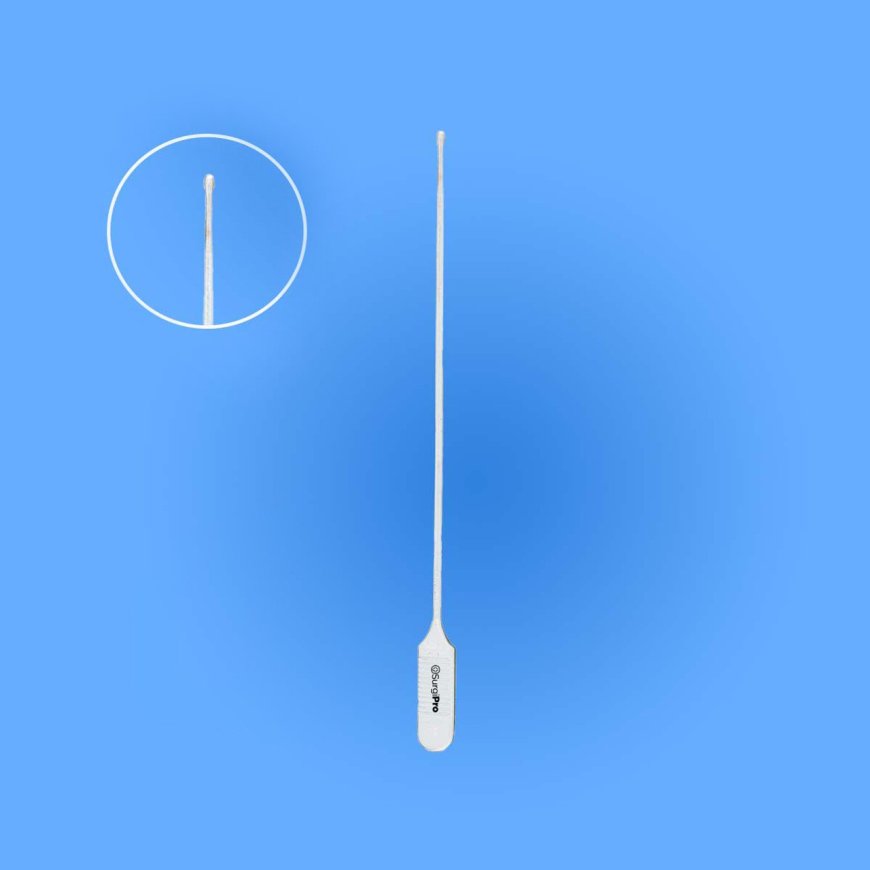Choosing the Right Surgical Probes & Directors for Your Practice
Discover the essential factors for selecting the ideal Surgical Probes & Directors for your medical practice. Explore material composition, design considerations, sterilization compatibility, and more to ensure precision and efficiency in surgical interventions.

In the realm of surgical procedures, precision is paramount. Surgeons rely on an array of tools to navigate delicate tissues and structures with accuracy and finesse. Among these tools, Surgical Probes & Directors play a crucial role, facilitating meticulous exploration and manipulation during various medical interventions. However, with a plethora of options available in the market, selecting the most suitable probes and directors for a particular practice can be a daunting task. This article aims to provide insights into the key considerations for making informed choices in this essential aspect of surgical equipment procurement.
Understanding the Role of Surgical Probes & Directors
Before delving into the selection process, it's essential to grasp the significance of surgical probes and directors in the operating room. These instruments are designed to aid surgeons in locating anatomical structures, assessing tissue integrity, and guiding surgical maneuvers with precision. Whether probing for hidden abnormalities or directing the trajectory of a surgical tool, these instruments serve as indispensable aids in achieving optimal surgical outcomes.
Factors to Consider When Choosing Surgical Probes & Directors
- Material Composition: The materials used in the construction of surgical probes and directors can significantly impact their performance and durability. Stainless steel, titanium, and specialized alloys are commonly employed due to their biocompatibility, corrosion resistance, and strength.
- Design and Ergonomics: The ergonomic design of surgical instruments plays a crucial role in reducing surgeon fatigue and enhancing maneuverability. Probes and directors with ergonomic handles and intuitive shapes enable comfortable and precise usage during lengthy procedures.
- Size and Tip Configuration: The size and configuration of the probe or director tip should align with the intended surgical application. Whether blunt, sharp, curved, or angled, the tip design must facilitate safe and effective tissue manipulation without causing undue trauma.
- Sterilization Compatibility: Ensuring compatibility with standard sterilization methods is essential for maintaining aseptic conditions in the operating room. Instruments that can withstand autoclaving or other sterilization processes without compromising their integrity are preferred for surgical use.
- Versatility and Specialty Features: Depending on the surgical specialty and procedural requirements, surgeons may require probes and directors with specialized features such as depth markings, graduated scales, or interchangeable tips. Choosing versatile instruments that can adapt to a range of applications enhances procedural flexibility.
- Manufacturer Reputation and Quality Assurance: Opting for probes and directors from reputable manufacturers known for adhering to stringent quality control standards can instill confidence in the reliability and performance of the instruments. Surgipro is a well-known brand trusted by medical professionals worldwide for its commitment to quality and innovation in surgical instrumentation.
FAQs
Are disposable probes and directors a viable option for surgical practices?
Disposable probes and directors offer the advantage of eliminating the need for sterilization and reducing the risk of cross-contamination. However, their cost-effectiveness and environmental impact should be weighed against the benefits of reusable instruments, particularly in high-volume practices.
Can surgical probes and directors be customized to suit specific surgical requirements?
Many manufacturers offer customization options for surgical instruments, allowing surgeons to tailor the design, size, and features according to their unique preferences and procedural needs. Customization services may entail additional costs and lead time but can ultimately enhance surgical precision and efficiency.
How frequently should surgical probes and directors be inspected and maintained?
Regular inspection, cleaning, and maintenance are essential to ensure the longevity and performance of surgical probes and directors. Visual inspection for signs of wear, corrosion, or damage should be conducted before and after each use, with adherence to manufacturer guidelines for cleaning and sterilization procedures.
Conclusion
In conclusion, selecting the right surgical probes and directors for your practice requires careful consideration of various factors ranging from material composition and design to sterilization compatibility and manufacturer reputation. By prioritizing quality, ergonomics, and versatility, surgeons can equip themselves with the tools necessary to navigate the complexities of modern surgical interventions with confidence and precision. Whether opting for standard configurations or exploring customized solutions, investing in high-quality instruments from trusted brands like Surgipro ensures optimal performance and patient safety in the operating room.

 miraedorra
miraedorra 





